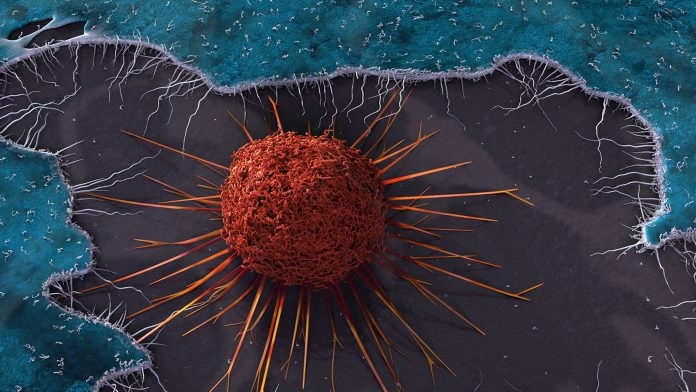
A blood test based on RNA and AI delivered 87% sensitivity and 95% specificity of detection across eight cancer types, according to results Exai Bio presented in a poster session at ASCO last weekend. This is an important new aspect to the highly competitive multi-cancer early detection (MCED) market. Most of the first entrants are using tests based on cell free DNA. Exai seeks an advantage by using RNA.
“The results demonstrate that Exai’s platform may close the performance gap of other blood-based approaches and deliver what patients and clinicians need: high cancer detection rates at early stages coupled with fewer false positives,” said Lee Schwartzberg, MD, Chief, Medical Oncology and Hematology at the Renown Health-Pennington Cancer Institute.
Cancer is the primary cause of death in those younger than 80 years and is the second leading cause of death in the U.S. It is well known that early detection is crucial to survival. As a result, companies are developing tests such as CancerSEEK, the Galleri test, and the PanSeer assay to detect cancer earlier.
Exai’s platform uses RNA sequencing to identify a novel category of cancer-associated, small non-coding RNAs—orphan non-coding RNAs (oncRNAs). These are secreted from cancer cells and are stable and abundant in the blood of cancer patients. Exai has created a catalog of hundreds of thousands of oncRNAs and thousands of patient oncRNA profiles, spanning all major cancer types.
“Cell free RNA is mostly unexplored,” Babak Alipanahi, co-founder and CSO at Exai told Inside Precision Medicine. “There is no one to copy, we built this process all by ourselves.”
Main advantages of oncRNAs is that they are plentiful and they appear to be cancer-specific. “We start from the tumor, which RNAs are present there and which are absent from healthy tissue, using data from TCGA [The Cancer Genome Atlas],” Alipanahi explained.
This MCED study presented at ASCO included 3,3000 patients and analyzed eight cancer types including lung, stomach, pancreas, kidney, colorectal, breast, prostate, and bladder. When a cancer signal was detected in the testing cohort, Exai’s platform could identify the tissue of origin with 88% to 95% accuracy.
In addition to the MCED data, Exai’s abstract “Consensus molecular subtypes and orphan non-coding RNAs in colorectal cancer” was published in the 2023 ASCO Annual Meeting proceedings.
In this study, to assess the effectiveness of oncRNAs for categorization of colorectal (CRC) subtypes, they examined smRNA-seq data from TCGA (n=504) for colon and rectal adenocarcinoma tumors. They used the consensus molecular subtype (CMS) classification system—a gene expression-based framework aimed at capturing the genetic and molecular heterogeneity in CRCs and stratifying patients into clinically relevant subgroups.
They next trained a machine learning model on oncRNA expression profiles to predict CMS groups using a 5-fold cross validation setup. Then they tested their model on an independent CRC cohort. The highest model-predicted likelihood for each CMS subtype had an accuracy of 73.6%.
“The signature is strong because of our AI,” Alipanahi said.
Previously, Exai has presented non-small lung cancer data at the American Association for Cancer Research (AACR) meeting 2023, breast cancer early detection and screening data at the San Antonio Breast Cancer Symposium (SABCS) 2022, monitoring and molecular residual disease detection data in breast cancer at SABCS 202, and colorectal cancer early detection and screening data at the 2022 European Society for MedicalOncology (ESMO) meeting.
